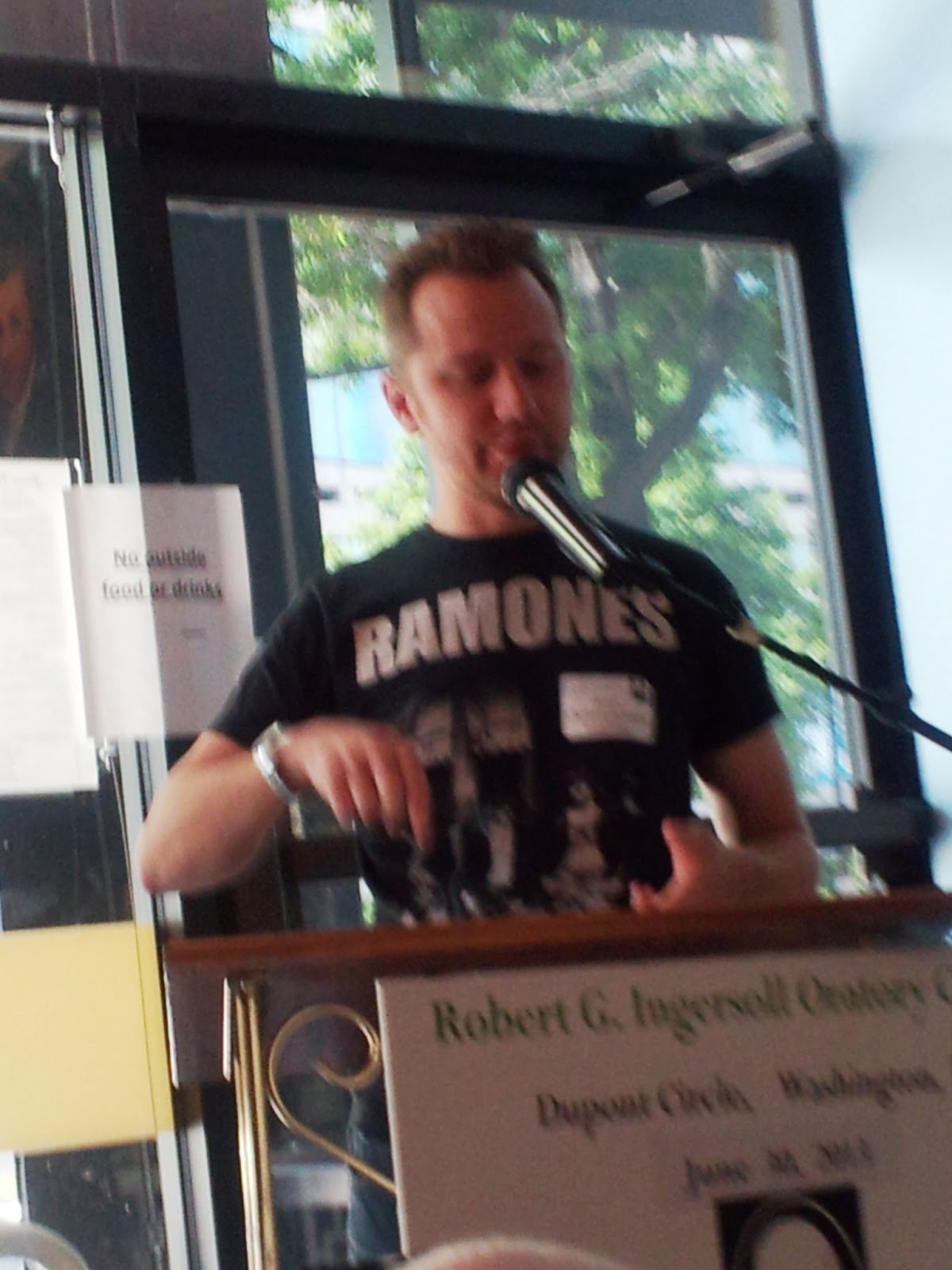By Gary Berg-Cross
When I was growing up Martin Luther King
was a clear, heroic voice speaking truth to established power. He seemed a moral giant then and continues
to inspire and motivate us.
Today Nelson Mandela, former
president and anti-apartheid leader, has
that robe of moral hero with a life painted with patient strength, topped with a
crowning wisdom and a generosity of spirit.
He never served on the military battlefield, and is humble in words, but
his is a life of bravery and dedication.
“I was not a messiah, but an ordinary man who
had become a leader because of extraordinary circumstances.” – Nelson Mandela
He
mastered, what must have been great, imprisoned emotional pain with a willingness
to smile. Other so called fathers of a nation, our
George Washington or Italy's Giuseppe Garibaldi, birthed a nation on a
battlefield. But Mandela did it with smiles and understanding. It's a long range strategy of an imprisonment. Knowledge came in time, but it served a lingering wisdom that was self learned.
He could see the big picture and make sacrifices
for the cause of others. His largeness of spirit and self mastery is not
deniable even by his enemies. As John
Carlin author of Playing the Enemy , noted he
showed his supposed enemies “ordinary respect” – and it won
them over. He overcame them by changing them. It's not something military. It is social.
Ever since Nelson Mandela became president of South Africa
after winning his country’s first democratic elections in April 1994, the
national anthem has consisted of two songs spliced—not particularly
mellifluously—together. One is “Nkosi Sikelel’ iAfrika,” or “God Bless Africa,”
sung at black protest rallies during the forty-six years between the rise and
fall of apartheid. The other is “Die Stem,” (“The Call”), the old white anthem,
a celebration of the European settlers’ conquest of Africa’s southern tip. It
was Mandela’s idea to juxtapose the two, his purpose being to forge from the
rival tunes’ discordant notes a powerfully symbolic message of national harmony.
All of this allowed what has been called
a double miracle. He didn't just bring a political settlement that
parceled out things for different races. He also started on a settlement path
in ordinary South African everyday life.
Recently
millions around the world celebrated his 95th birthday and his homeland South
Africans there
were songs and hundreds gathered outside his hospital bearing cards, balloons and flowers. Others participated in special charitable
events. They celebrate by volunteering 67 minutes of good deeds in recognition
of Mandela’s 67 years in public service. (One only wishes that MLK had had that
time.)
And its no longer just for
South African now the event that has been internationally designated “Nelson
Mandela Day”. A good chance to celebrate some of his values such
as promoting a fair, just and equitable world.
Here's to a great Humanitarian voice.
No one is born hating another person because of the color of his skin, or his background, or his religion. People must learn to hate, and if they can learn to hate, they can be taught to love, for love comes more naturally to the human heart than its opposite.” –Nelson Mandela
Images
Nelson Mandela after his release from twenty-seven years in prison, Soweto, South Africa, Feb. 17, 1990. Photograph by Louise Gubb
Smiling image below by Luis Grañena








